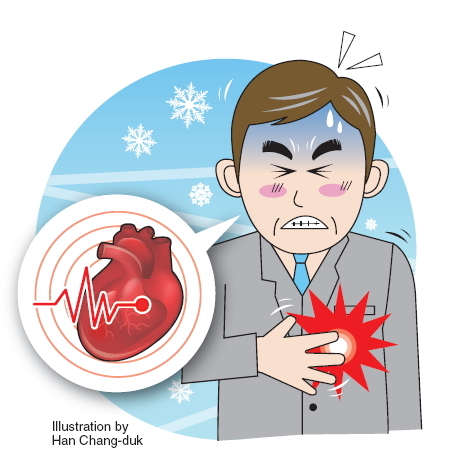
With a westernized lifestyle and diet, and aging society, we live in a time of increasing cancer and cardiovascular diseases. The classic symptoms of cardiovascular disease include chest pain, palpitations and shortness of breath. Many people may not be aware of any symptoms, so some people can suddenly develop symptoms of cardiovascular disease while they thought they were healthy. Therefore, if you have any symptoms related to the heart, it is highly recommended that a cardiologist examine you. Even if you do not have any symptoms, if you have many risk factors for heart disease, have more thorough heart tests during your health checks.
Electrocardiogram
This is a graph of electrical activity related to heartbeats, and it is the most standard test for diagnosing the status of the heart. It can help the assessment of hearts status and function, as well as help to diagnose chronic diseases, such as arrhythmia, myocardial disease, chronic and myocardial infarction; acute heart diseases such as acute myocardial infarction; or lung disease that can affect the heart. This is the most basic test for everyone undergoing health checks.
Stress test
Similar to the electrocardiogram, this involves attaching electrodes to the arms, legs and the chest to record the electrical activity of the heart at rest and while exercising on a treadmill. This allows the observation of changes in the electrocardiogram, as well as other symptoms such as chest pain and breathlessness (dyspnea), which can be used to evaluate the heart function, including angina, arrhythmia and exercise ability. This test takes approximately 30 minutes to complete. It involves exercise during the test, so may be difficult for those with mobility problems.
Echocardiography
This test uses ultrasound, which is not harmful to the body, in order to assess the heart structure and function, as well as diagnosing various heart diseases. Examples of such include heart valve diseases, such as stenosis or valvular regurgitation; ischemic heart disease such as myocardial infarction, pericardial disease, heart failure, congenital heart disease, tumors in the heart or surrounding areas, and diseases of the aorta. The test takes approximately 20-40 minutes to complete, but may take up to one hour depending on the circumstances. There are no precautions for you to take before having the test, such as fasting or taking medications.
Coronary artery CT
This test uses a CT (computerized tomography) scan to image the coronary arteries that supply blood to the heart muscles. The test allows the diagnosis of ischemic heart disease, such as myocardial infarction or angina, and can also involve the use of contrast agents that allow closer visualization of the arteries. Some people may be sensitive to the contrast agent used, so during health checks, only the coronary artery calcium CT is done to estimate the calcification of the arteries. There are no particular side effects to the coronary artery calcium CT. However, in some cases, your doctor may want to undergo a CT angiography using contrast if there are particular symptoms.
Cardiac MRI
This is one of the most popular tests and involves the use of an MRI (magnetic resonance imaging) that can also be done to image other organs. It is a good test for diagnosing myocardial disease, tumors of the cardiovascular system, and ischemic diseases including angina, and also allows the assessment of heart function. However, as for the CT, it requires adjustment of the heart rate before the test and takes longer than others to perform. It is also difficult to perform with claustrophobic patients.
Who should be tested?
People who have been smoking for a long time, who have diabetes or hypertension, or who have a family history of heart disease, have hyperlipidemia (cholesterol or triglycerides), or are obese are more likely to develop heart diseases. Therefore, heart tests are recommended for these persons. The symptoms of cardiovascular disease vary, and in those who are asymptomatic, the prediction of heart disease is difficult even with testing. Hence, rather than relying on one test alone, it is best that the patient discusses with his or her doctor the best test to have.
Tips for a healthy heart
― Avoid smoking
― Monitor your blood pressure and blood sugar closely
― Reduce cholesterol intake
― Increase the intake of vegetables and fruit rather than meat
― Exercise regularly
― Control your body weight
― Reduce stress
 |
|
Park Jeon-euy |
By Park Jeon-euy
The author is a doctor in the Division of Cardiology at Samsung Medical Center and a professor of Sungkyunkwan University School of Medicine. ―Ed.